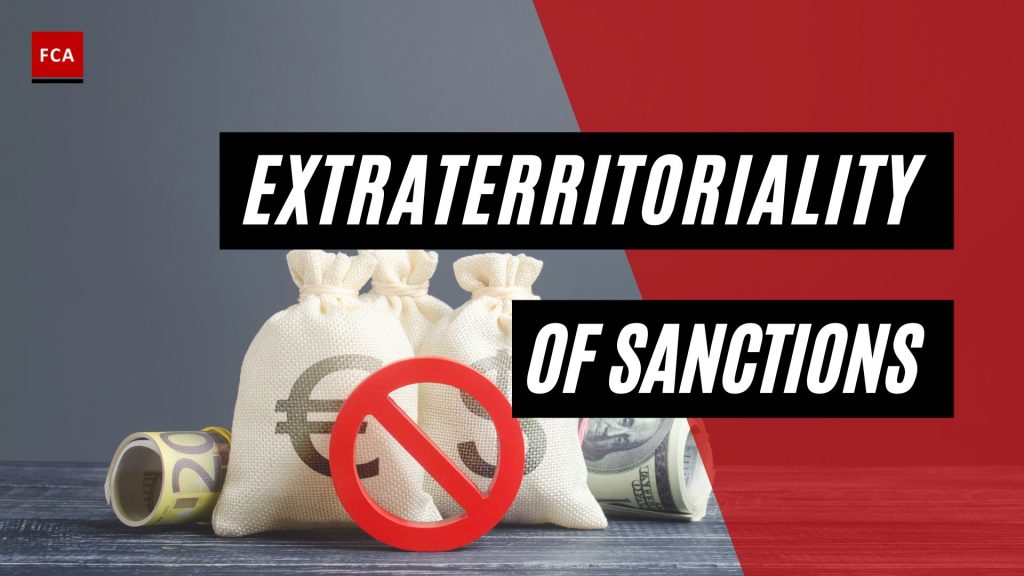The extraterritoriality of sanctions is the ability of a state to make, apply, and enforce laws, regulations, and other rules of conduct concerning persons, property, or activity beyond its territory.
Extraterritoriality, means the ability of a state to make, apply, and enforce laws, regulations, and rules of conduct concerning property, persons, or activity beyond its territory. The US is the primary government engaged in applying extraterritoriality to its sanction regime.

The Extraterritoriality of Sanctions
The European Union (EU), believing that the practice of extraterritoriality violates international law, does not allow for the concept of extraterritoriality, concerning the sanctions restrictions that it imposes. The EU describes extraterritorial sanctions as sanctions that “non-US citizens and companies are also expected to comply with” outside the US jurisdiction. These are also known as “secondary sanctions” as opposed to “primary sanctions.
The sanctions, imposed by the EU apply only where links to the EU are present, so they are primary sanctions. The EU follows this concept when it is implementing sanctions introduced by the United Nations (UN). The purpose for the “secondary sanctions” stems from globalization weakening the impact of the “primary sanctions” as alternative finance and trade become more available.
People often misunderstand the idea of extraterritoriality, taking it to mean that the restrictions imposed by EU sanctions cannot apply to persons or activities once they are outside of the EU’s geographic borders. Restrictions imposed by the EU apply to all EU persons, wherever they are in the world.
The broad scope of laws of the US affects people, property, and acts all over the world. In attempting to protect EU-based entities and individuals with commercial interests from its negative consequences, European policymakers have recently been exposed as more or less helpless.

To pursue the strategic objectives effectively, Europeans must focus on more than just increasing strategic autonomy from the US government. In the absence of a diplomatic agreement with the executive branch, they must also make better use of existing channels of influence. One avenue would be to provide substantial diplomatic, and financial support to EU-based companies in domestic courts, to challenge the executive branch when enforcing US law beyond borders. Only the judicial branch can effectively limit the extraterritorial application of US jurisdiction.
Final Thoughts
Sanctions are now a key component of government foreign policy. The extraterritorial impact of sanctions on trade and welfare, and discovers that the majority of the extraterritorial burden of sanctions falls on target countries, resulting in significant reductions in trade with third countries. Surprisingly, sanctions increase trade between senders and third countries. As a result, extraterritoriality sanctions appear to be a stick and a carrot for third countries, with the net effects depending on the size of the target and sender states, as well as the economic ties between the third countries/regions.








